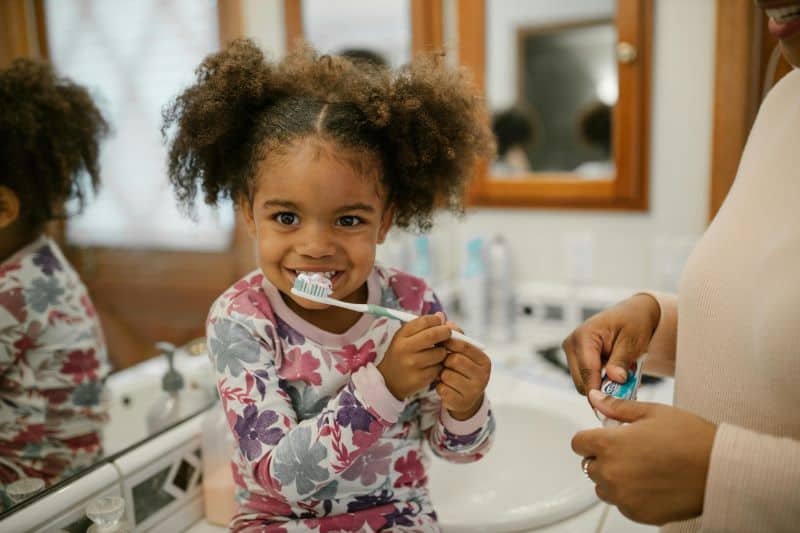
28 Mar How to Care For Your Teeth During Pregnancy
How to Care For Your Teeth During Pregnancy
Pregnancy is a beautiful journey, but it also comes with its challenges, including dental care. Many expecting mothers overlook the importance of oral health during pregnancy, unaware of its potential impact on both maternal and fetal well-being. Neglecting dental hygiene can lead to various issues such as gum disease and tooth decay, which can affect the overall health of the mother and the baby. In this article, we will delve into essential tips for maintaining dental health during pregnancy, ensuring a comfortable and healthy journey for both mother and child.
Understanding the Importance of Dental Care During Pregnancy
During pregnancy, hormonal changes can significantly impact oral health, making pregnant women more susceptible to dental problems such as gum disease and tooth decay. These hormonal shifts can lead to increased gum sensitivity, inflammation, and bleeding, making it essential for expectant mothers to prioritize dental care. Furthermore, morning sickness and cravings for sugary foods can exacerbate these issues, further emphasizing the need for proper oral hygiene and regular dental check-ups. Neglecting dental care during pregnancy can result in complications such as pregnancy gingivitis, which not only affects the mother’s comfort but can also have implications for the baby’s health. By understanding the importance of dental care during pregnancy, women can take proactive steps to maintain their oral health and ensure a smooth journey to motherhood.
Importance of Regular Dental Check-ups
Regular dental check-ups are crucial during pregnancy to monitor oral health and address any emerging issues promptly. Dentists can provide specialized care tailored to the needs of pregnant women, ensuring safe and effective treatments. These check-ups allow dentists to assess the health of the gums, detect any signs of decay or infection, and provide preventive interventions as needed. Additionally, dental professionals can offer guidance on oral hygiene practices specific to pregnancy and address any concerns or questions the expectant mother may have. By attending regular dental appointments, pregnant women can stay proactive in protecting their oral health and safeguarding the well-being of themselves and their babies.
Maintaining Good Oral Hygiene
Practicing good oral hygiene habits is essential for preventing dental problems during pregnancy. This includes brushing teeth twice a day with fluoride toothpaste and using a soft-bristled toothbrush to avoid irritation to sensitive gums. Flossing daily helps remove plaque and food particles from between the teeth, reducing the risk of gum disease and cavities. Pregnant women should also pay attention to their diet, opting for nutritious foods rich in calcium and vitamin C to support healthy teeth and gums. Avoiding sugary snacks and acidic beverages can minimize the risk of dental erosion and decay. By maintaining good oral hygiene practices, expectant mothers can protect their dental health and contribute to a positive pregnancy experience.
Dietary Recommendations for Dental Health
A balanced diet plays a crucial role in maintaining dental health during pregnancy. Consuming foods rich in essential nutrients such as calcium, vitamin C, and phosphorus helps strengthen tooth enamel and support gum health. Dairy products, leafy greens, and citrus fruits are excellent sources of these vital nutrients. Additionally, drinking plenty of water helps rinse away food debris and neutralize acids in the mouth, reducing the risk of cavities and gum disease. Pregnant women should limit their intake of sugary and acidic foods, as these can contribute to dental problems such as tooth decay and erosion. Making informed dietary choices can support optimal dental health during pregnancy and contribute to overall well-being for both mother and baby.
Managing Morning Sickness Effectively
Morning sickness is a common symptom during pregnancy and can have implications for oral health due to increased acidity in the mouth. To manage morning sickness effectively, pregnant women can rinse their mouths with water or a fluoride mouthwash after vomiting to help neutralize acids and protect tooth enamel. It’s essential to wait at least 30 minutes before brushing teeth after vomiting, as brushing immediately can further damage weakened enamel. Additionally, consuming small, frequent meals and avoiding spicy or greasy foods can help alleviate nausea and minimize the impact on dental health. By taking proactive steps to manage morning sickness, expectant mothers can protect their oral health and ensure a more comfortable pregnancy experience.

Addressing Dental Issues Promptly
During pregnancy, addressing dental issues promptly is crucial to prevent complications and ensure the well-being of both mother and baby. Any dental problems such as toothaches, swollen gums, or signs of infection should be addressed promptly to avoid escalation. Delaying treatment can lead to increased discomfort, further complications, and potential risks to maternal and fetal health. Pregnant women should communicate openly with their dentists about their pregnancy status and any concerns they may have. With proper care and timely interventions, dental issues can be effectively managed, allowing expectant mothers to maintain optimal oral health throughout pregnancy.
Safe Dental Treatments During Pregnancy
Communication between pregnant women and their dentists is essential to ensure safe and suitable treatments during pregnancy. While some dental procedures may be postponed until after childbirth, many routine treatments, such as cleanings and fillings, are considered safe during pregnancy with proper precautions. Dentists can take steps to minimize risks, such as using alternative materials for fillings and avoiding unnecessary exposure to radiation during X-rays. By discussing their pregnancy status and any concerns with their dentists, expectant mothers can receive appropriate care while ensuring the safety of themselves and their babies. Prioritizing dental health during pregnancy contributes to overall well-being and sets the stage for a healthy start for the newborn.
Postpartum Dental Care
After childbirth, it’s essential for new mothers to continue prioritizing dental care to maintain optimal oral health. Pregnancy and childbirth can bring about hormonal changes that may affect dental health, making postpartum dental check-ups crucial for addressing any lingering issues. Dentists can assess the impact of pregnancy on oral health and provide necessary treatments or interventions. Additionally, new mothers should continue practicing good oral hygiene habits, including brushing and flossing regularly, to prevent dental problems and support overall well-being. By incorporating postpartum dental care into their wellness routine, women can ensure a smooth transition into motherhood and maintain a healthy smile for themselves and their families.
FAQs (Frequently Asked Questions)
Can I undergo dental X-rays during pregnancy?
Dental X-rays are generally avoided during pregnancy unless absolutely necessary. Your dentist will take appropriate precautions to minimize radiation exposure and ensure the safety of you and your baby.

Is it safe to undergo teeth whitening treatments while pregnant?
Teeth whitening treatments are not recommended during pregnancy due to potential risks to fetal development. It’s best to postpone such procedures until after childbirth.
How can I alleviate gum sensitivity during pregnancy?
Gentle brushing and flossing, along with using a soft-bristled toothbrush, can help alleviate gum sensitivity. Additionally, rinsing with a saltwater solution may provide relief.
What should I do if I experience a dental emergency during pregnancy?
If you experience a dental emergency, such as severe pain or swelling, contact your dentist immediately. They can provide guidance over the phone and schedule an emergency appointment if necessary.
Can pregnancy affect the development of my baby’s teeth?
Proper maternal dental care during pregnancy can positively impact the development of the baby’s teeth. Nutrient-rich foods and good oral hygiene contribute to healthy dental development in infants.
Should I continue using fluoride toothpaste during pregnancy?
Yes, fluoride toothpaste is safe to use during pregnancy and helps prevent tooth decay. However, ensure you spit out the toothpaste rather than swallowing it.
In Conclusion
Maintaining dental health during pregnancy is vital for the well-being of both the mother and the baby. By following these tips and guidelines, expecting mothers can safeguard their oral health and enjoy a smooth pregnancy journey. Remember to prioritize regular dental check-ups, practice good oral hygiene habits, and seek prompt treatment for any dental issues that may arise. With proper care and attention, you can ensure a healthy smile for yourself and your little one.



Sorry, the comment form is closed at this time.